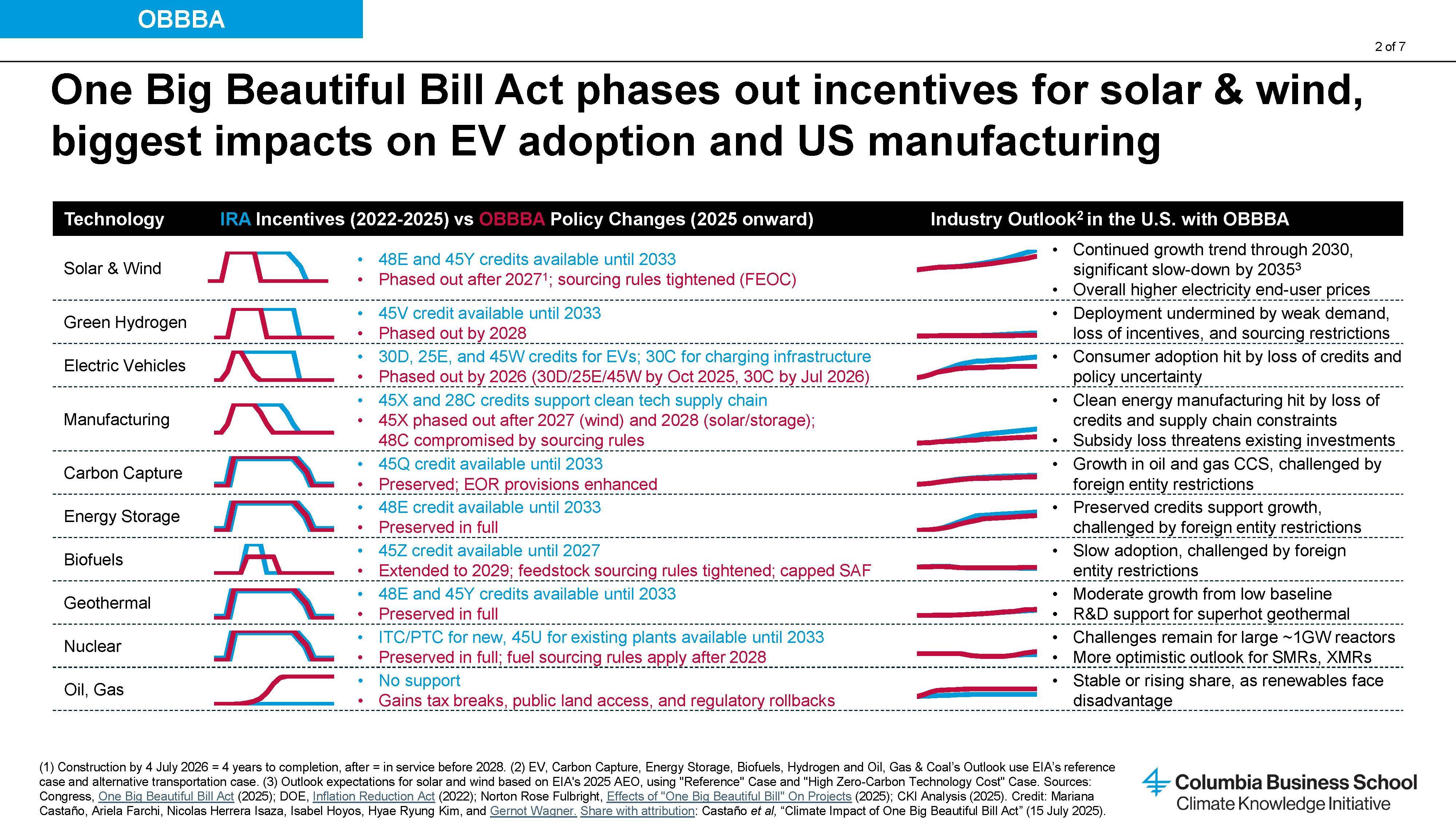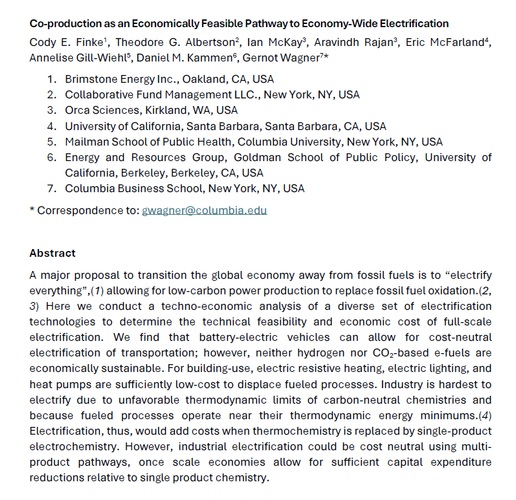America's Clean Energy Transition Will Continue Despite the One Big Beautiful Bill Act
While the OBBBA guts renewable energy incentives, undercuts US manufacturing, and hands a long-term advantage to China, economics will continue to drive clean energy growth.
By Isabel Hoyos, Hyae Ryung (Helen) Kim & Gernot Wagner

President Donald Trump signed the One Big Beautiful Bill Act (OBBBA) into law on July 4, radically reforming the American energy and industrial policies shaped by his predecessor’s 2022 Inflation Reduction Act (IRA).
While the new bill delivers targeted wins for clean energy technologies like geothermal and nuclear—largely by not rolling back IRA provisions—it slashes key IRA tax incentives for solar and wind generation, green hydrogen production, electric vehicles (EVs), and home electrification. It also tightens restrictions around foreign investment and procurement, which threatens domestic clean tech manufacturing and disrupts already strained supply chains.
The one energy sector the OBBBA unequivocally supports? Fossil fuels, with expanded access to public lands, tax breaks, credits, and regulatory rollbacks—not to mention a handicap on their biggest competitors, solar, wind, and electric vehicles.
Continue reading at business.columbia.edu.

